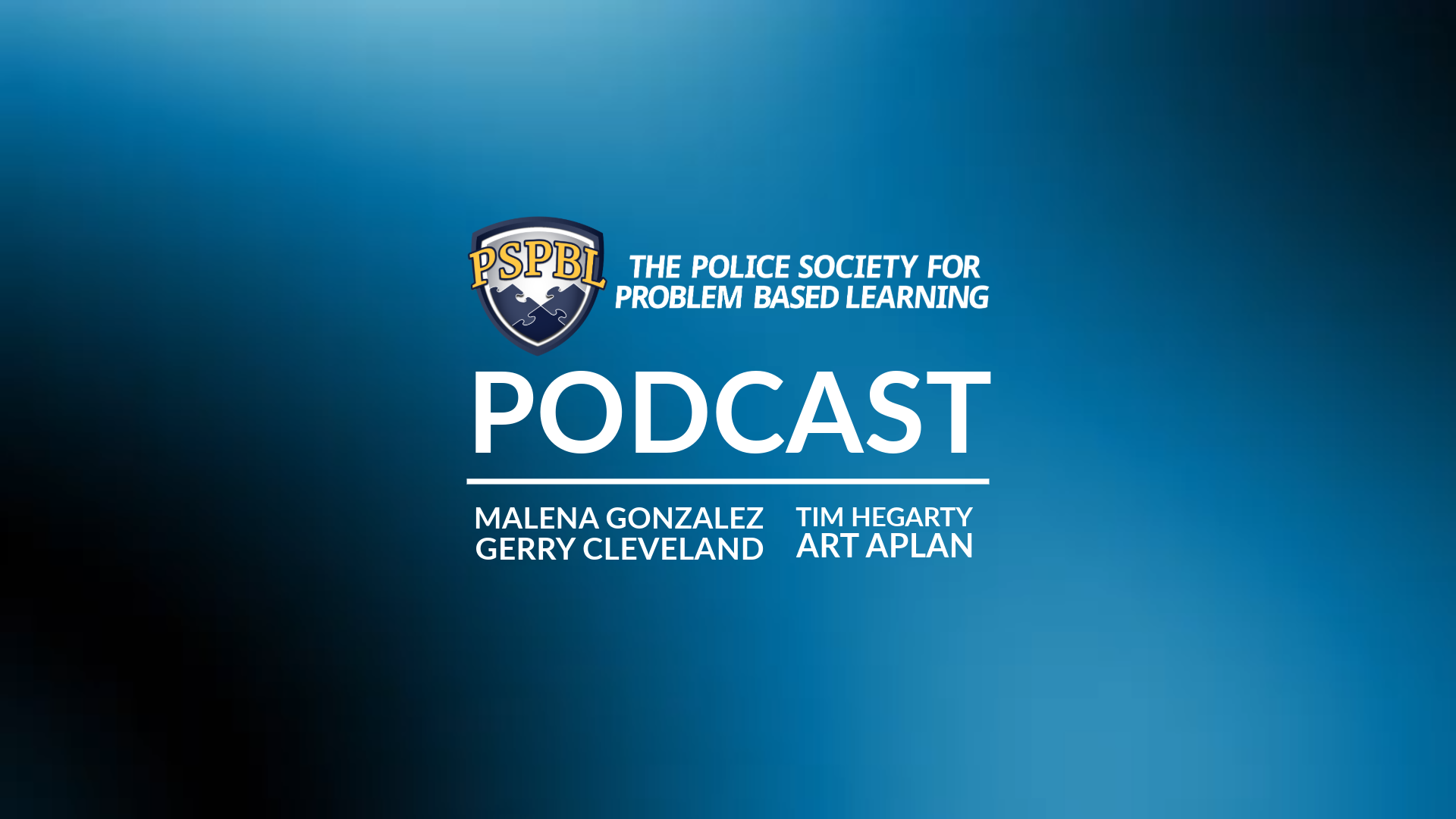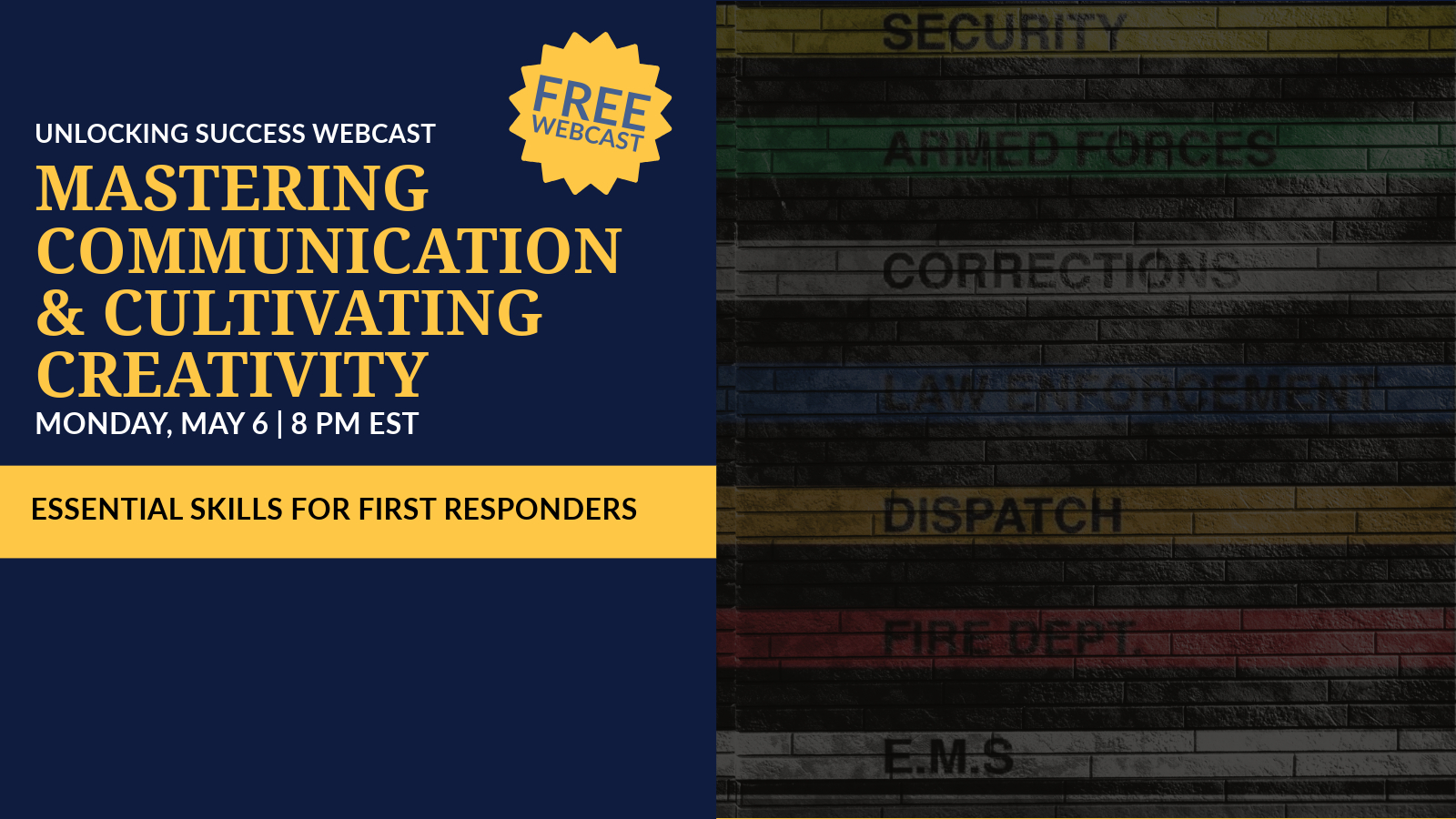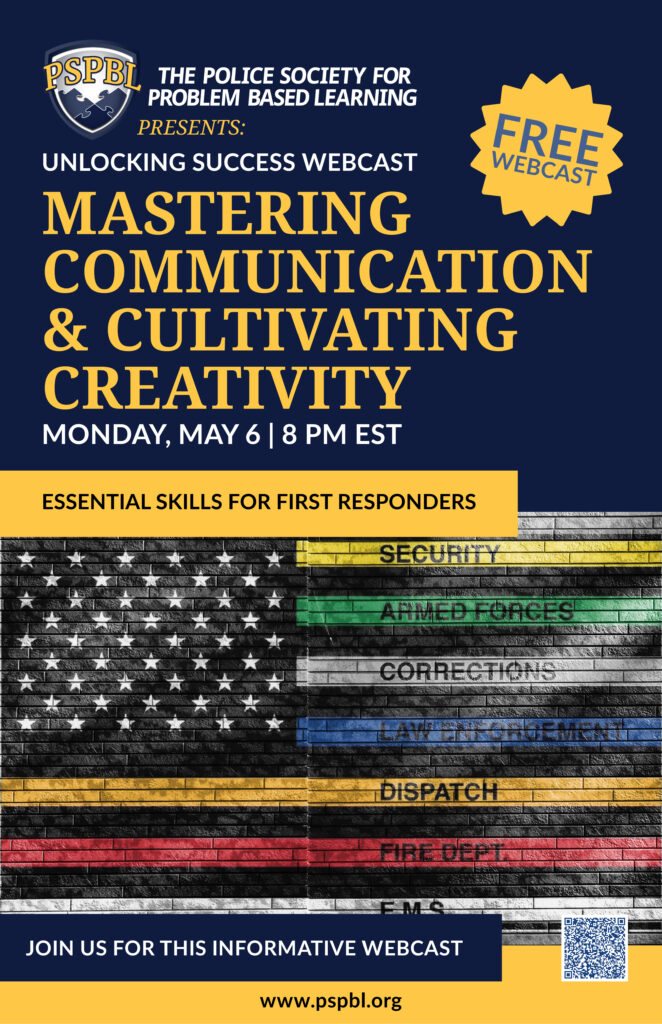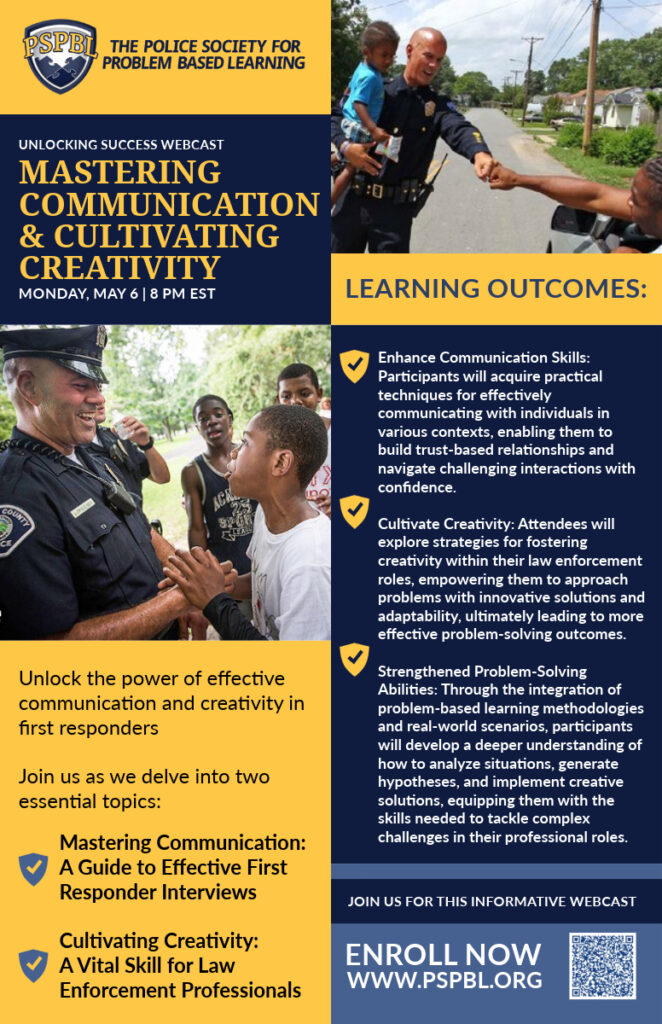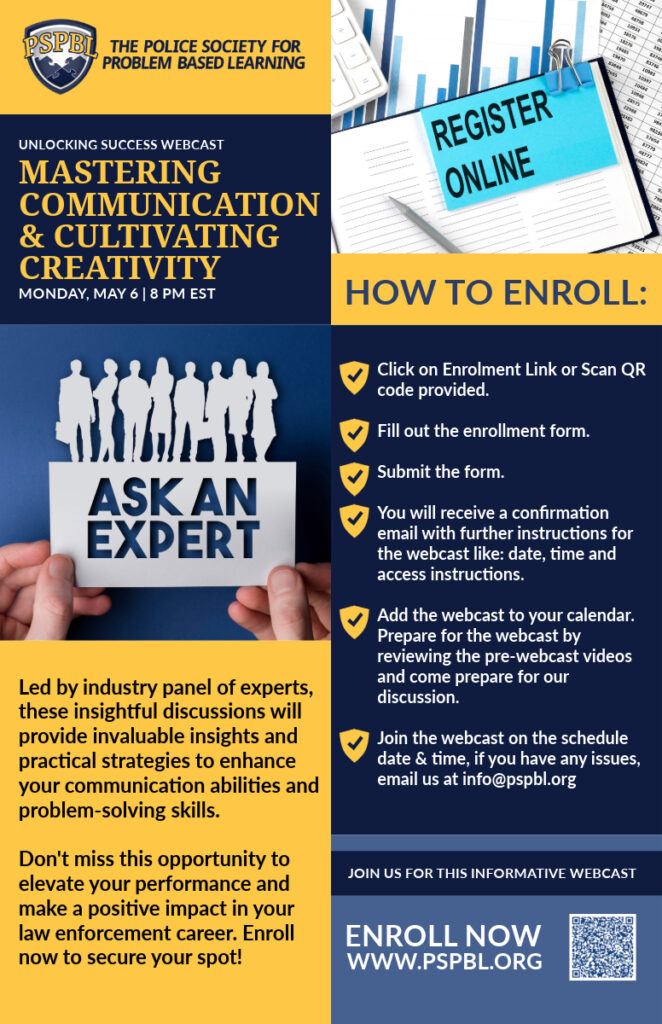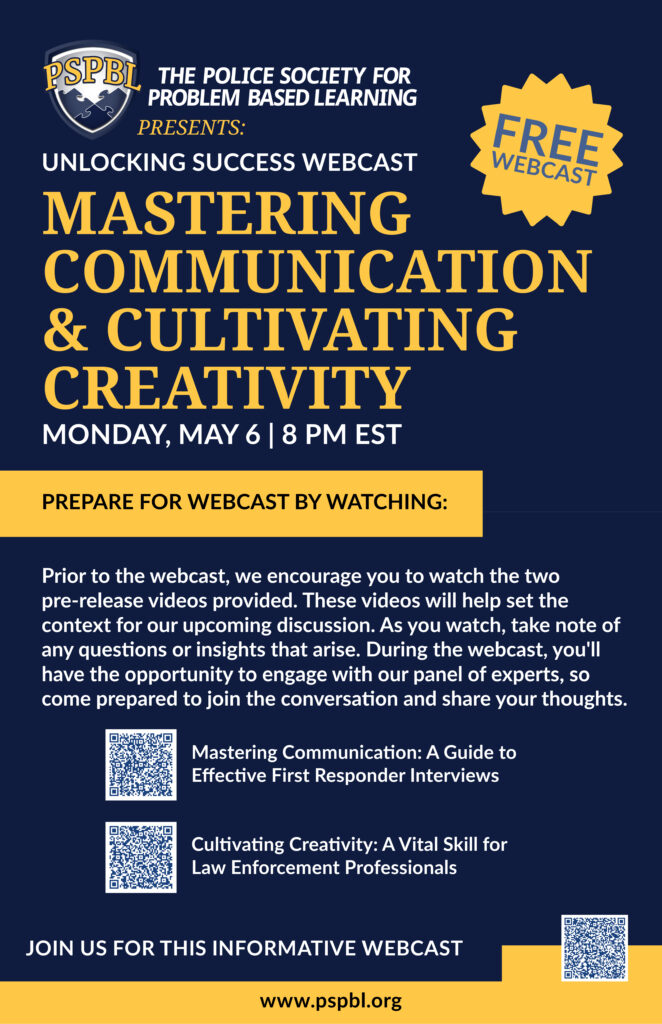Modernizing Police Training: A Three-Part Podcast Series
Bridging the Gap Between Training and Real-World Policing
The world of law enforcement is evolving rapidly, and police academies must adapt to meet the growing demands of modern policing. Are traditional training methods still effective? How can problem-based learning (PBL), critical thinking, and emotional intelligence enhance officer preparation?
In this three-part podcast series, we bring together law enforcement education experts Gerard Cleveland, Art Aplan, and Tim Hegarty to discuss the disconnect between academy training and real-world policing, the challenges of implementing active learning, and practical strategies for modernizing instructor development and curriculum.
🔎 What You’ll Learn in This Series:
✅ Part 1: Identifying the gaps in police training and why modern approaches are needed.
✅ Part 2: Exploring practical changes that academies can implement to better prepare recruits.
✅ Part 3: Sharing expert recommendations on how to bring problem-based learning and active strategies into law enforcement education.
💡 Whether you’re an instructor, a recruit, or part of law enforcement leadership, this series is packed with insights to help you enhance police training and prepare officers for the complexities of the job.
🎧 Listen now and be part of the conversation!
Moving Forward >>>
While transitioning to problem-based learning (PBL) and student-centered training can be challenging, even small steps—like introducing **one PBL instructor or one interactive training module—**can create a ripple effect.
Want to learn more? Listen to the full podcast episode and get in touch with us at info@pspbl.org to explore upcoming training opportunities.


